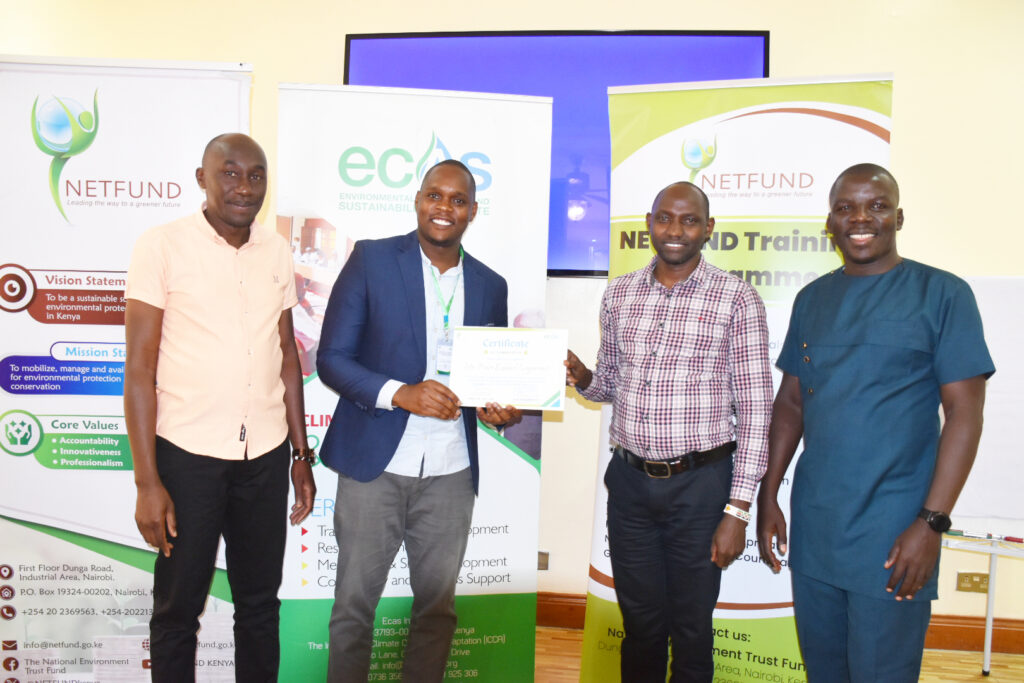
CONCEPT NOTE
INTERNATIONAL TRAINING ON MONITORING PUBLIC EXPENDITURE ON FOOD AND AGRICULTURE: THE MAFAP METHOD
COURSE BACKGROUND
Effective and efficient public spending on food and agriculture is vital for achieving sustainable agricultural transformation, food security, and rural development. However, many governments and institutions struggle to monitor and analyze this expenditure in a way that informs evidence-based policy decisions. Recognizing this challenge, ECAS Institute, a leading Pan-African think tank and training provider in sustainable development, climate governance, and agri-food systems, has developed this course to bridge the technical capacity gap in public expenditure tracking.
Using the Monitoring and Analysing Food and Agricultural Policies (MAFAP) methodology developed by the FAO, this course provides hands-on tools to monitor, classify, and analyze agricultural public spending effectively. ECAS brings together domain expertise, policy experience, and practical tools—making it the ideal institution to offer such a specialized, policy-relevant training.
COURSE OBJECTIVES OF THE TRAINING
This training aims to:
- Build technical capacity to monitor and analyze public agricultural expenditure using the MAFAP methodology.
- Equip participants to identify underinvestment and optimize budget allocations in agriculture and food systems.
- Strengthen data-driven decision-making to influence national agricultural policy and investment priorities.
- Improve transparency and accountability in public spending related to food systems.
WHAT YOU WILL LEARN
By the end of the course, participants will be able to:
- Understand the role of public expenditure monitoring in agricultural policy.
- Apply best practices in collecting and organizing agricultural expenditure data.
- Use the MAFAP methodology to conduct public expenditure analysis.
- Build and maintain an expenditure database tailored to their national or organizational context.
- Interpret key public spending indicators to inform strategic policy and budget decisions.
DURATION AND PROGRAM
TARGET PARTICIPANTS
This course is designed for technical and policy professionals involved in agriculture and public finance. Ideal participants include:
- Government officials (economists, policy analysts, and researchers in ministries of agriculture, finance, or trade)
- NGO staff engaged in agriculture and budget advocacy
- Policy officers and technical advisors from FAO and related international organizations
- University students and academics in agricultural economics or public policy
- Researchers and consultants working in development finance and policy reform
TRAINING MODULES
| No | Module | Details | |
| 1. | Introduction to Policy Monitoring in Agriculture |
This module sets the stage for understanding the broader importance of policy monitoring and how it affects investment decisions in agriculture.
Topics:
|
|
| 2. | MAFAP Public Expenditure Analysis – Theory and Concepts |
Explores the theoretical underpinnings of the MAFAP framework and its relevance to agricultural policy monitoring.
Topics:
|
|
| 3. | MAFAP Public Expenditure Analysis Methodology |
Delivers a detailed understanding of how the MAFAP methodology is applied in practice.
Topics:
|
|
| 4. | Data Needs and Sources |
Identifies the types of data required and where to source them for meaningful analysis.
Topics:
|
|
|
5.
|
Collecting Public Expenditure Data |
Covers practical methods for gathering data from diverse sources.
Topics:
|
|
| 6. | Classifying Public Expenditure Data |
Teaches how to classify and organize data to support comparability and analysis.
Topics:
|
|
| 7. | Building a MAFAP Public Expenditure Database |
Guides participants through creating and managing a database to store and analyze expenditure data.
Topics:
|
|
| 8. | Interpreting Public Expenditure Indicators |
Focuses on interpreting and using key indicators derived from the MAFAP framework to inform policy and planning.
Topics:
|
|
TRAINING STYLE
The modules will be taught through PowerPoint presentations, and lectures and will include a case study/field visit, breakout sessions, case studies and other interactive discussion components.
The course will also include a few guest speakers, both in person and via Zoom and other online learning platforms for overseas speakers. This provides useful real-world insights alongside the more theoretical aspects of the course.
The conference faculty shall consist of experienced decision makers, as well as practitioners and representatives from established educational and research institutions active around climate change, engineering and international development. Throughout the course, theoretical presentation of concepts will be moderated and more group discussions and plenary engagements will be optimized. PowerPoint presentations will be made by facilitators and resource persons, to highlight key concepts before embarking on group work.
GENERAL NOTES
- Training manuals and additional reference materials are provided to the participants.
- Upon successful completion of this course, participants will be issued with a certificate.
- We can also do this as a tailor-made course to meet organization-wide needs. Contact us to find out more: info@ecasiafrica.org.
- Payment should be sent to our bank account before the start of training and proof of payment sent to: info@ecasiafrica.org.
ABOUT ECAS INSTITUTE
The ECAS Institute designs and delivers independent and targeted training, research, and consulting services. Our work focusses on climate change and resilience building, carbon markets, renewable energy, nature-based solution, biodiversity conservation, agriculture and food systems, We are located in Nairobi Kenya and work across the African region. We have implemented training and research assignments in Kenya, Tanzania, Uganda, South Sudan, Somalia, Malawi, Rwanda, Congo, and South Africa. Globally, we have supported our partners from the UK, Denmark, Italy, Sweden, Germany, and USA.

